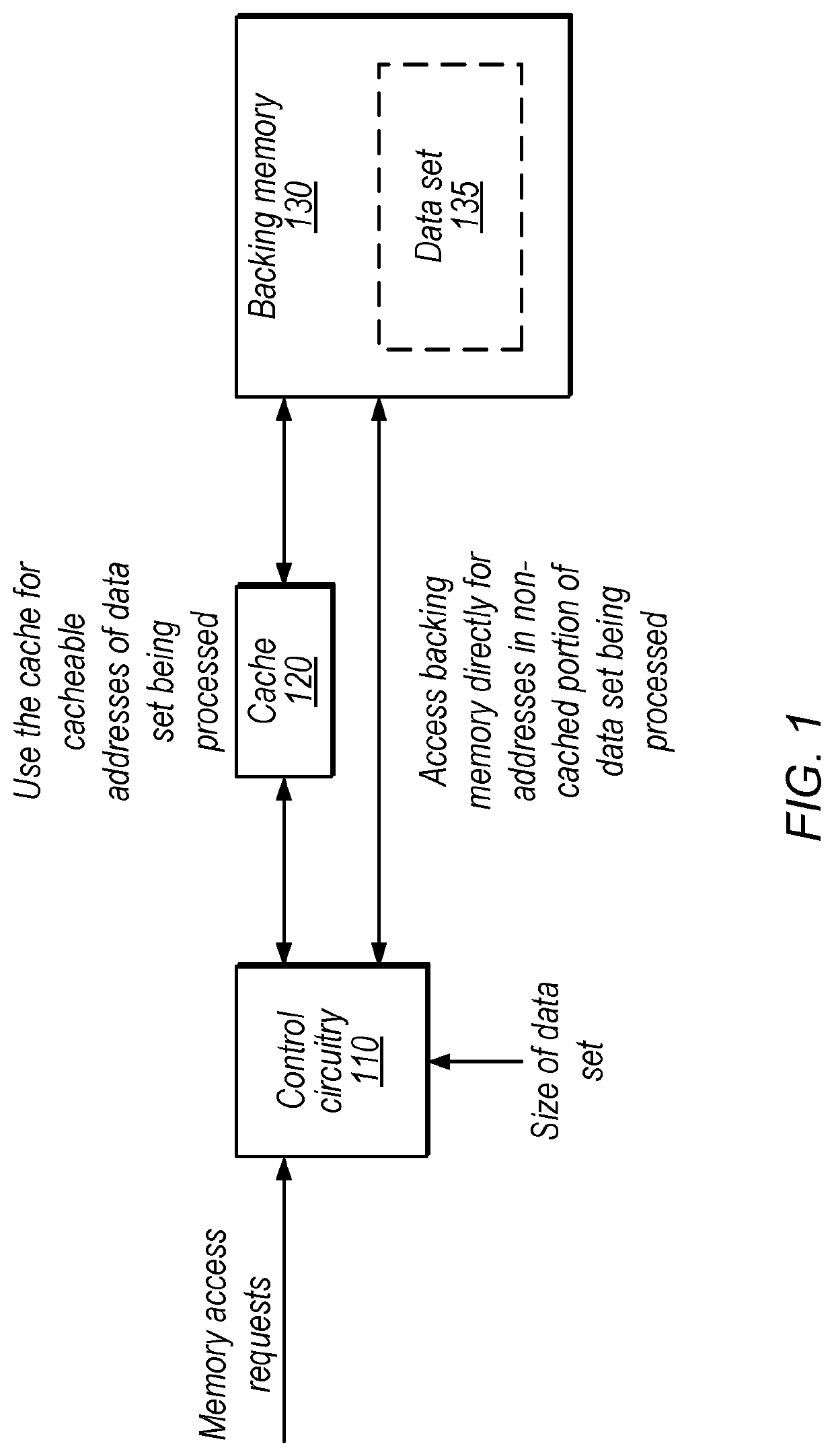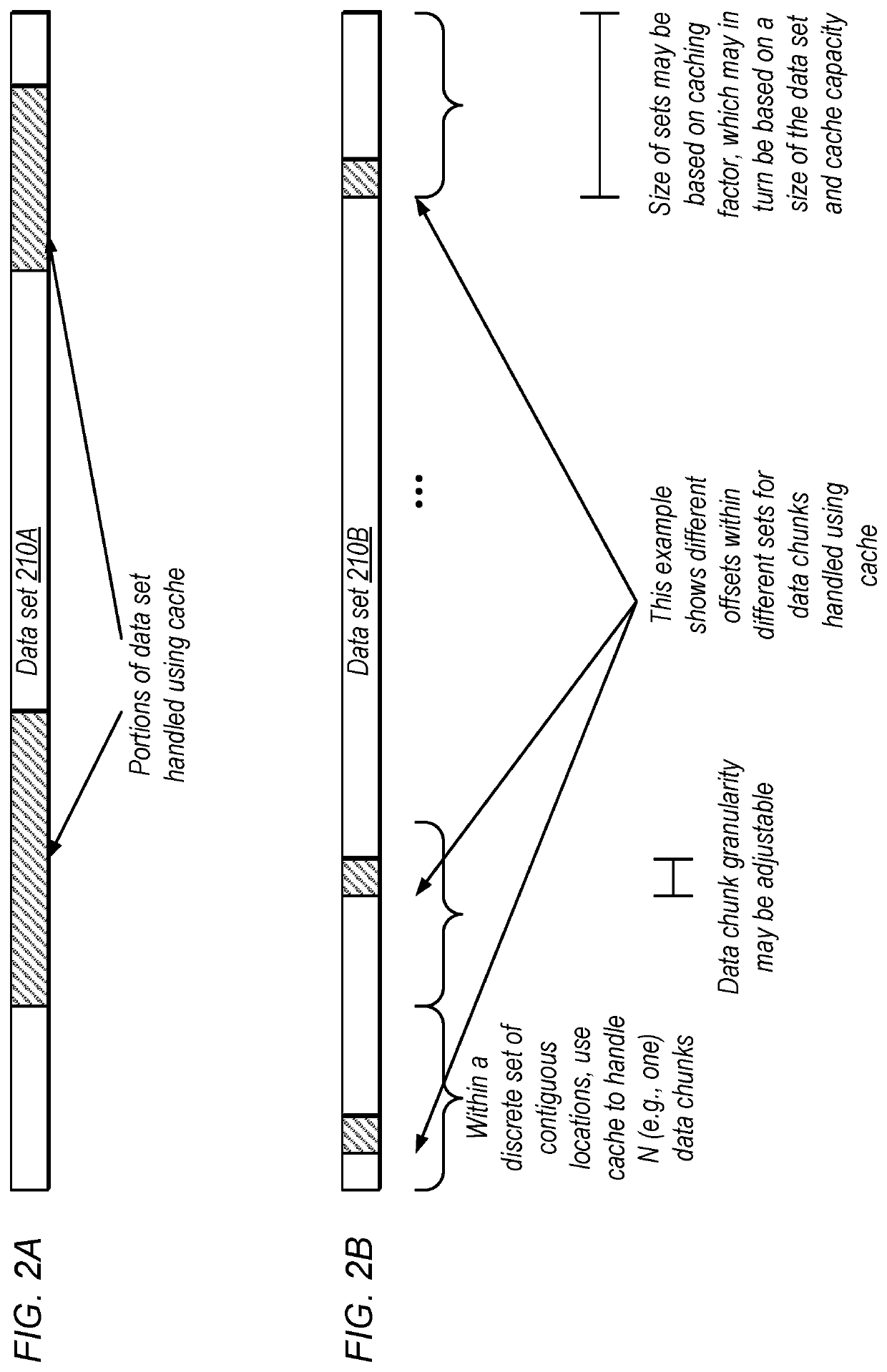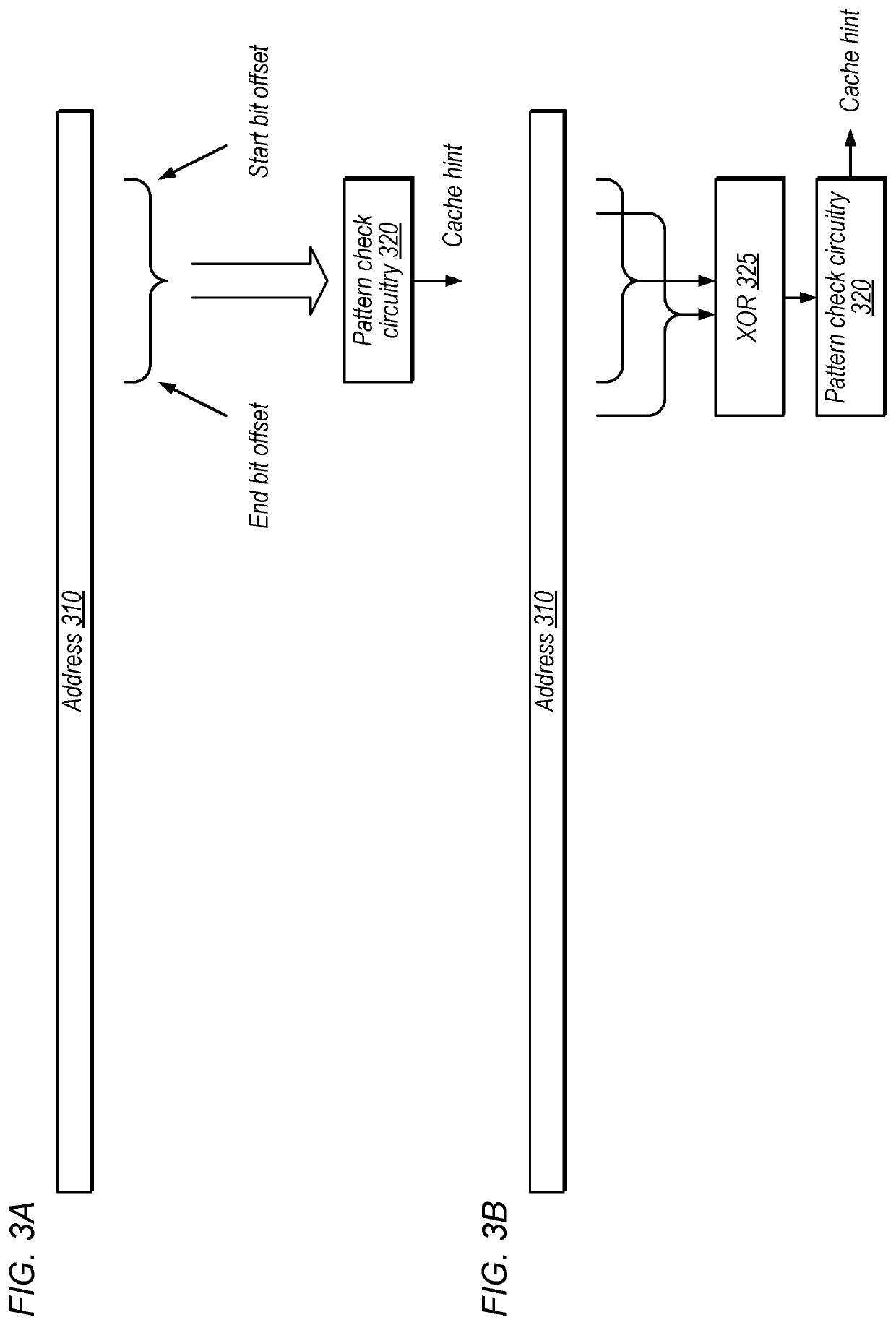Cache Filtering
a filtering and cache technology, applied in the field of cache memory, can solve the problems of large traffic, cache thrashing, cache misses,
- Summary
- Abstract
- Description
- Claims
- Application Information
AI Technical Summary
Benefits of technology
Problems solved by technology
Method used
Image
Examples
example cached
and Non-Cached Portions of a Data Set
[0024]FIG. 2A is a diagram illustrating example portions of a data set 210A to be handled using the cache (while accesses to other portions may bypass the cache). In the example of FIG. 2A, a substantial number of consecutive data chunks are included in each of the portions of the data set to be handled using the cache. In other embodiments, the cacheable addresses may be separated, e.g., using a sieve pattern.
[0025]FIG. 2B is a diagram illustrating an example of sieve filtering, according to some embodiments. In the illustrated example, data set 210B includes multiple sets of data chunks (three sets are explicitly shown in FIG. 2B). In some embodiments, within a set, the cache is used to handle a certain number of data chunks (one data chunk per set in the illustrated example, although larger numbers of chunks per set are contemplated).
[0026]In the example of FIG. 2B, the offsets of cached data chunks within each set are different for different ...
example method
[0038]FIG. 4 is a flow diagram illustrating a method for handling only a portion of a data set with a cache, according to some embodiments. The method shown in FIG. 4 may be used in conjunction with any of the computer circuitry, systems, devices, elements, or components disclosed herein, among others. In various embodiments, some of the method elements shown may be performed concurrently, in a different order than shown, or may be omitted. Additional method elements may also be performed as desired.
[0039]At 410, in the illustrated embodiment, graphics processor circuitry receives a request to process a set of data using at least one processor of a set of one or more processors that are configured to cache data in a cache. For example, the processors may include one or more programmable shaders and the cache may be a surface cache. As other non-limiting examples, the disclosed techniques may be used for an internal cache of a CPU core, a cache that is shared among multiple cores, or...
example device
[0044]Referring now to FIG. 5, a block diagram illustrating an example embodiment of a device 500 is shown. In some embodiments, elements of device 500 may be included within a system on a chip. In some embodiments, device 500 may be included in a mobile device, which may be battery-powered. Therefore, power consumption by device 500 may be an important design consideration. In the illustrated embodiment, device 500 includes fabric 510, compute complex 520 input / output (I / O) bridge 550, cache / memory controller 545, graphics unit 570, and display unit 565. In some embodiments, device 500 may include other components (not shown) in addition to and / or in place of the illustrated components, such as video processor encoders and decoders, image processing or recognition elements, computer vision elements, etc.
[0045]The techniques disclosed herein may be utilized in various caches in various types of computing devices, such as the device shown in FIG. 5. For example, the disclosed techniq...
PUM
 Login to View More
Login to View More Abstract
Description
Claims
Application Information
 Login to View More
Login to View More - R&D
- Intellectual Property
- Life Sciences
- Materials
- Tech Scout
- Unparalleled Data Quality
- Higher Quality Content
- 60% Fewer Hallucinations
Browse by: Latest US Patents, China's latest patents, Technical Efficacy Thesaurus, Application Domain, Technology Topic, Popular Technical Reports.
© 2025 PatSnap. All rights reserved.Legal|Privacy policy|Modern Slavery Act Transparency Statement|Sitemap|About US| Contact US: help@patsnap.com



